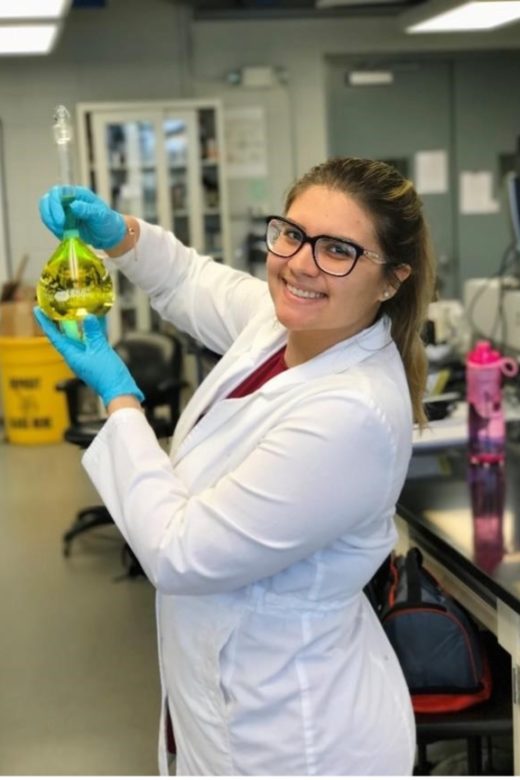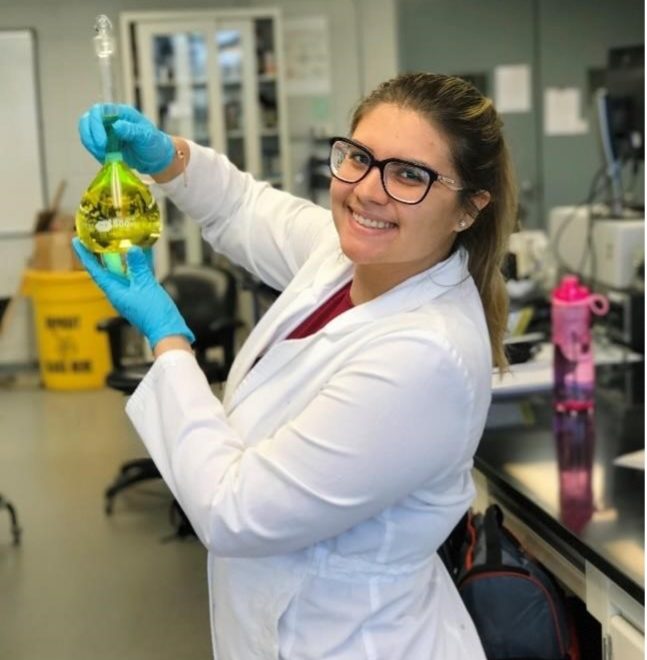Release Date: December 16, 2022
By: Heather Gilliam

Nicole Fernández-Tejero always wanted to serve her country through science, but it wouldn’t be until she found a “C.S.I.: Las Vegas” disk in her mother’s car that she discovered forensics. After watching it, she was hooked. Her mother, having realized Fernández’s interest, gave her a toy fingerprint profiling kit for kids.
“My sisters and I began our new ‘crime-solving’ expeditions!” said Fernández. “By that time, I knew I wanted a career in forensic science. I didn’t know what my path would be, but I knew that was my dream.”
She began her academic career by earning her bachelor’s degree in chemistry from the University of Puerto Rico Piedras, but she wasn’t sure how this would lead to forensics. Then, Fernández joined Florida International University for her master’s degree in chemistry after finding their forensics summer research program. It was here she met many forensic scientists, such as Doctor Bruce McCord, who asked her to join his U.S. Department of Homeland Security’s (DHS), Summer Research Team Program for Minority Serving Institutions (SRT MSI).
The SRT Program is designed to increase scientific leadership at Minority Serving Institutions in DHS research areas. The program provides faculty and student research teams the opportunity to conduct research at university-based DHS Centers of Excellence.
Fernández was accepted, and over the summer collaborated on a project with the Texas A&M CrossBorder Threat Screening and Supply Chain Defense (CBTS) Center of Excellence (COE) in partnership with the U.S. Department of Homeland Security (DHS) Science and Technology Directorate (S&T), Office of University Programs (OUP) and the team at McCord’s research laboratory. Her research project was to find a way to detect fecal contamination in produce using both the traditional polymerase chain reaction (PCR) method and the newer digital PCR (dPCR) method. PCR and dPCR are laboratory techniques for amplifying DNA so that it can be studied in detail. For Fernández, this allowed her to view whether a sample of DNA was contaminated by other DNA, or in this case, by feces.
The goal was to fine-tune the dPCR method to improve fecal contamination detection because dPCR offers more clarity than the traditional PCR. Fernández used strawberries for her experiments, though in the future she hopes dPCR will be used for all fields of agriculture. The results could be used to keep the public safe by giving customs a way to quickly detect contamination in imported food.
“During the collection of strawberries and other agricultural products, there is a potential for disease resulting from fecal contamination due to irrigation water, contact with the hands of agricultural workers or animals, and storm runoff,” explained Fernández. “By identifying the contamination source of our samples, we would gain a better insight into how to address present and/or future agricultural contamination.”
Fernández presented the research at the Southeastern Regional Meeting American Chemical Society and is preparing to present at other conferences. She also published academic papers on her research, such as “High resolution melt analysis for the detection of skin/sweat via DNA methylation” and “Pyrosequencing: Current forensic methodology and future applications—a review” in Electrophoresis.
During her fellowship Fernández was able to learn a lot about the planning process of laboratory experimentation. She is grateful that she got to network with many varied scientists, as well as employees of the federal government. She is glad for the many meaningful connections she made.
When asked if she would recommend the program she said: “Go for it! This has been one of the most educational and best experiences I’ve had as a graduate student. I 100% recommend the ORISE program to expand your knowledge base, expose yourself to different working environments and continue understanding your field more in depth.”
Today, Fernández is a doctoral degree candidate at Florida International University and is planning to defend her dissertation. Her time with the DHS as a fellow has greatly influenced her career trajectory, says Fernández, and she would like to continue her path with the federal government.
The DHS SRT MSI Program is funded by DHS and administered through the U.S. Department of Energy’s (DOE) Oak Ridge Institute for Science and Education (ORISE). ORISE is managed for DOE by Oak Ridge Associated Universities.

